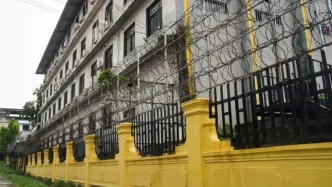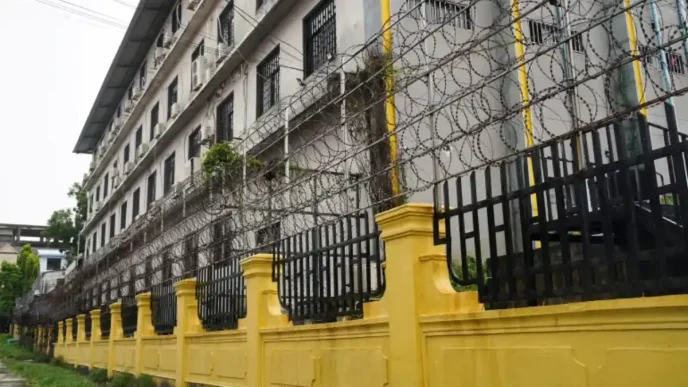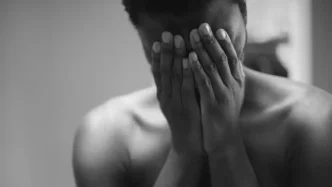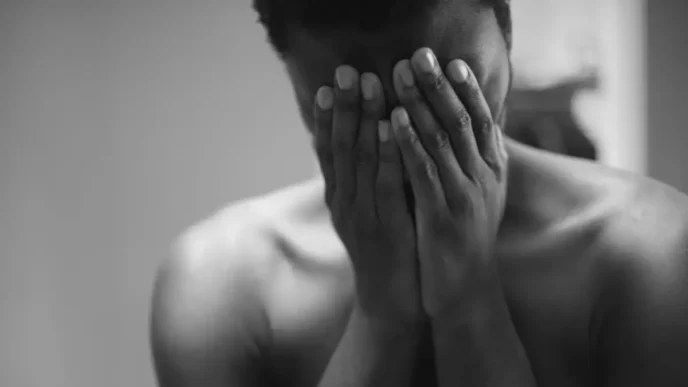Former Philippine President Rodrigo Duterte made his first appearance before the International Criminal Court (ICC) on 14 March 2025, marking a historic moment in the long-running scrutiny of his administration’s brutal drug war. Arrested on 11 March upon returning from Hong Kong, Duterte faces allegations of crimes against humanity linked to a campaign that, according to government figures, claimed at least 6,000 lives. Human rights groups, however, estimate the death toll could be as high as 20,000. This case not only spotlights Duterte’s controversial legacy but also raises broader questions about accountability, sovereignty, and the future of justice in the Philippines.
The arrest and subsequent ICC proceedings have gripped the nation, with Malacañang Palace maintaining a cautious distance. Presidential Communications Officer Undersecretary Claire Castro stated during a press conference on 21 March that the Palace had no information regarding rumors of Duterte seeking asylum in China prior to his arrest. “We received no such information. That’s not part of the info that the Palace has been getting” she said in Filipino. The only detail confirmed by the Palace was that Duterte was returning from Hong Kong, where he had attended a campaign rally for his endorsed senatorial candidates.
The ICC Case: Allegations and Arrest
Duterte’s arrest on 11 March 2025 came under a warrant issued by the ICC, which has been investigating the Philippines’ drug war since 2018. The court’s focus is on alleged extrajudicial killings and other human rights abuses committed during Duterte’s presidency from 2016 to 2022. The campaign, which Duterte famously championed with rhetoric encouraging violence against drug suspects, became a hallmark of his tenure. While the government reported around 6,000 deaths in police operations, independent estimates from human rights organizations suggest a far grimmer reality, with up to 20,000 fatalities, including many believed to be victims of vigilante killings.
The former president’s arrival at the ICC on 14 March, as captured by images released by the court and published by the Philippine Daily Inquirer, symbolized a rare instance of a former head of state facing international justice. Duterte has publicly accepted responsibility for the drug war, though it remains unclear how he will plead in court. The charges, if proven, could set a precedent for holding leaders accountable for state-sanctioned violence, a prospect that has both supporters and critics on edge in the Philippines.
Asylum Rumors and Official Silence
In the days leading up to Duterte’s arrest, unverified reports surfaced claiming he had sought asylum in China, only to be denied. These allegations, which emerged in local media on 20 March, have not been substantiated by any official source. When pressed on the matter, Undersecretary Castro reiterated the Palace’s lack of knowledge, stating, “That he was already on the way home from Hong Kong — that’s it” she said. The absence of comment from both the Philippine government and Chinese authorities leaves the rumor as mere speculation, with no evidence to confirm its validity at this stage.
The notion of asylum, if true, would add a geopolitical layer to an already complex case. China, a key ally of Duterte during his presidency, has often been seen as a counterbalance to Western criticism of his policies. However, without corroboration, such claims remain outside the scope of verified reporting. The focus, for now, remains on the ICC proceedings and their implications for the Philippines.
The Drug War’s Legacy: A Nation Divided
Duterte’s drug war has long polarized opinion in the Philippines. For many, particularly those who supported his hardline stance, the campaign was a necessary response to rampant drug-related crime. Duterte’s unapologetic rhetoric — often laced with profanity and promises of violence — resonated with a public frustrated by systemic corruption and insecurity. Official data claiming 6,000 deaths, primarily in police operations, was presented as evidence of a controlled, if harsh, policy.
Yet, for human rights advocates, the drug war was a humanitarian catastrophe. Reports of extrajudicial killings, summary executions, and the targeting of impoverished communities painted a picture of unchecked state power. The discrepancy between the government’s figures and the 20,000 deaths estimated by groups like Human Rights Watch underscores the scale of contention. Families of victims, many of whom were breadwinners in low-income households, have repeatedly called for justice, often at great personal risk.
The ICC’s involvement has further deepened this divide. While some Filipinos view the court as a beacon of accountability, others see it as an infringement on national sovereignty. Duterte himself withdrew the Philippines from the ICC’s Rome Statute in 2019, a move that delayed but did not halt the court’s investigation. His arrest signals that international justice mechanisms may still hold sway, even over leaders who reject their authority.
International Implications and Regional Context
The Duterte case is being closely watched beyond the Philippines, particularly in Southeast Asia, where leaders often grapple with balancing human rights and domestic stability. Countries like Thailand and Indonesia, which have faced criticism for their own security policies, may see the ICC’s actions as a warning. At the same time, the case tests the court’s reach in a region where geopolitical alliances — such as those with China or the United States — can complicate international interventions.
If the ICC secures a conviction, it could embolden activists and legal bodies to pursue similar cases elsewhere. Conversely, an acquittal or dismissal might reinforce arguments that international courts lack the teeth to enforce rulings against powerful figures. Analysts suggest that the outcome, whatever it may be, will influence how future leaders approach policies with potential human rights implications.
Conditional scenarios also merit consideration. If, for instance, evidence presented at the ICC substantiates the higher death toll estimates, pressure could mount on the Philippine government to revisit past investigations. Alternatively, if Duterte’s defense successfully challenges the court’s jurisdiction, it may limit the ICC’s influence in similar cases. These possibilities remain speculative, with no confirmed outcomes at this early stage of the proceedings.
Domestic Political Fallout
Within the Philippines, Duterte’s arrest has reignited debates about his political influence. Despite leaving office in 2022, he remains a formidable figure, as evidenced by his active campaigning for senatorial candidates in Hong Kong just days before his arrest. His enduring popularity among certain demographics poses a challenge for the current administration under President Ferdinand Marcos Jr., which must navigate public sentiment while cooperating with international bodies.
Critics of the government argue that Malacañang’s muted response to the arrest reflects a reluctance to alienate Duterte’s base. Others interpret it as a pragmatic stance, avoiding entanglement in a case that could define Marcos’s own legacy. Public reactions, gleaned from social media platforms like X, show a spectrum of emotions — from anger at perceived foreign overreach to hope for long-delayed justice for victims’ families.
The Road Ahead: Justice or Impunity?
As Duterte’s case unfolds at the ICC, the eyes of the world are on the Philippines. The proceedings are not just about one man but about the broader question of whether leaders can be held accountable for policies that cost thousands of lives. For the families of those killed in the drug war, the trial offers a glimmer of hope, though many remain skeptical that justice will be served given the political and legal complexities involved.
The disparity in death toll figures, the unverified asylum rumors, and the geopolitical undercurrents all add layers of uncertainty to an already contentious saga. What is clear, however, is that the outcome of this case will resonate far beyond the courtroom in The Hague. It could reshape the Philippines’ relationship with international justice, influence regional attitudes toward human rights, and determine whether the shadow of the drug war will finally be confronted or continue to loom over the nation’s future.
As hearings progress, Filipinos and global observers alike await answers to a fundamental question: will this be a turning point for accountability, or another chapter in a long history of impunity?














